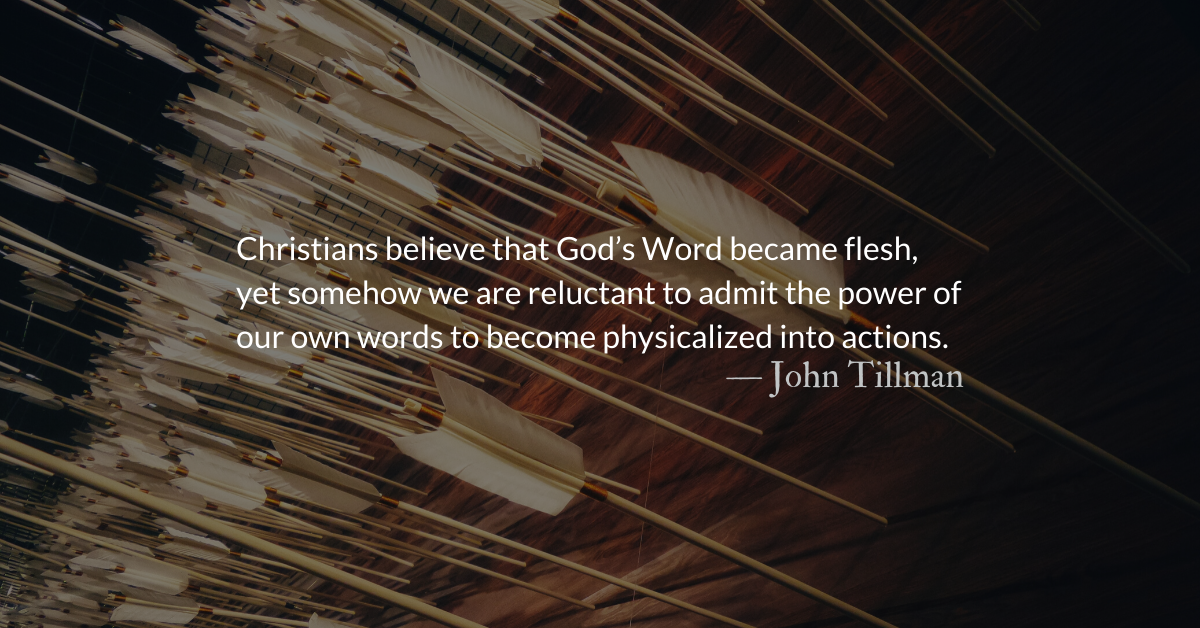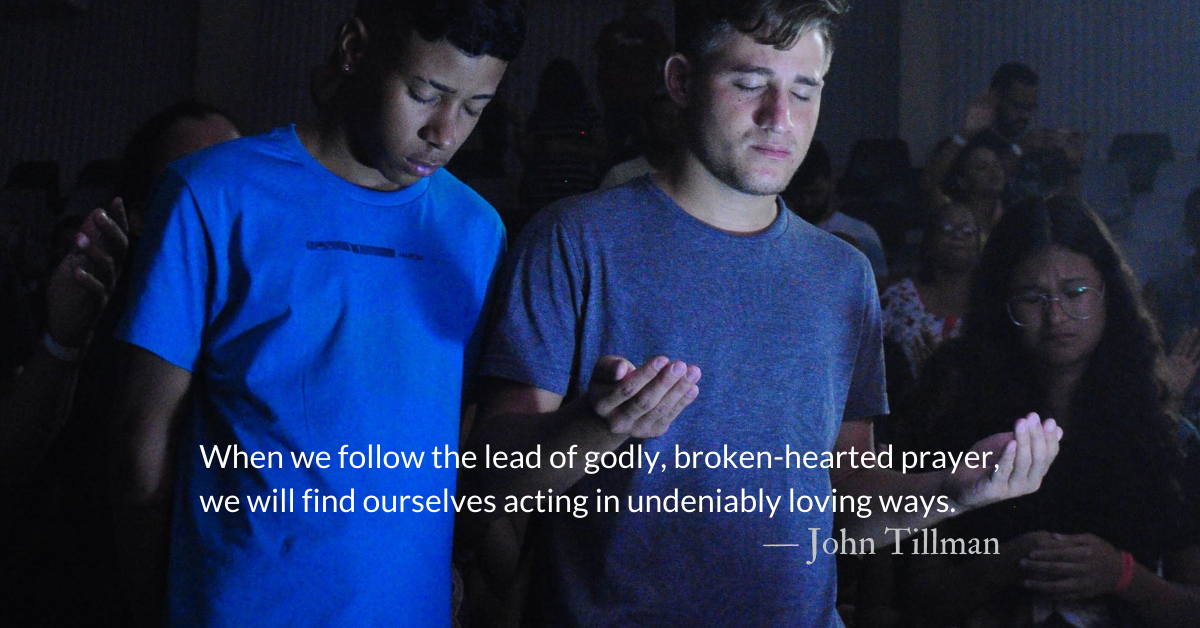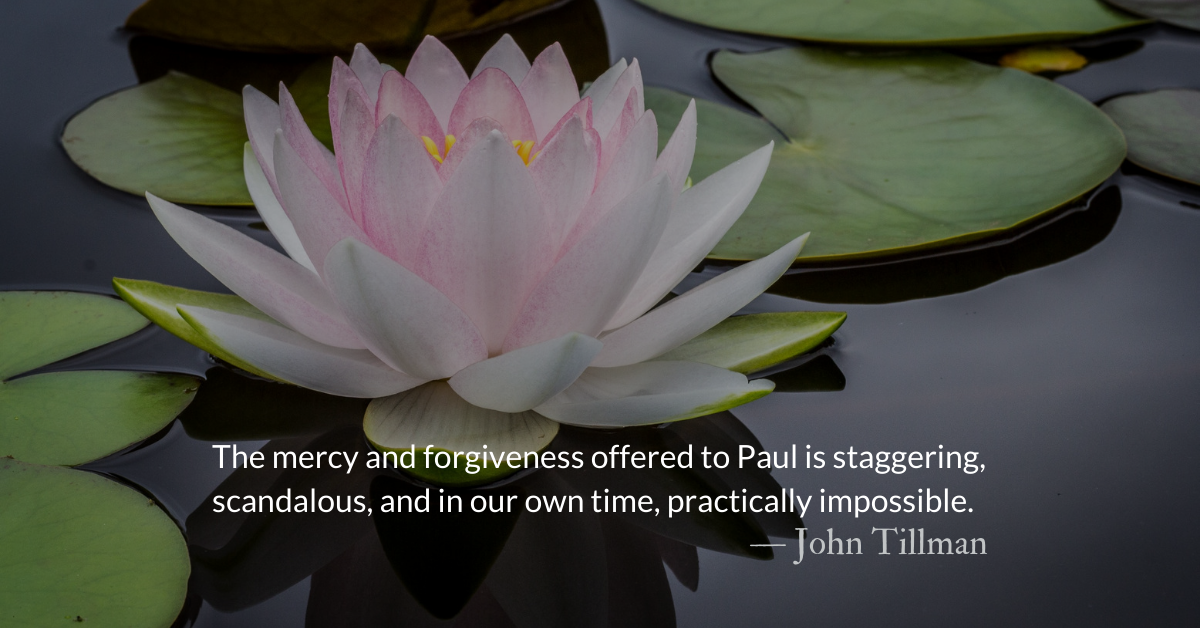Scripture Focus: 2 Timothy 2.24-25
The Lord’s servant must not be quarrelsome but must be kind to everyone, able to teach, not resentful. Opponents must be gently instructed, in the hope that God will grant them repentance leading them to a knowledge of the truth.
From John:
Sadly this devotional from 2017 begs to be repeated. The world’s online language has gotten more, instead of less, brutal in two years. But worse and more shocking, the language of many Christians and prominent Christian pastors has followed, growing combative, disrespectful, and even violent, disqualifying themselves, according to Paul from being “the Lord’s servant…” May we repent and call our leaders to follow suit.
Reflection: Choosing Gentleness Over Violence
By John Tillman
When we discuss differences online, the overheated rhetoric of partisan headlines can become a part of our own speech as we share articles or videos that describe our opponents—not their arguments or political positions—as being destroyed, ripped, blasted, shredded. The more violent and dehumanizing the verb, the better.
This isn’t just verbal hyperbole. It is being borne out in actions as more and more people are physically assaulted following online interactions that lead to violence or threats of violence. These types of actions can be extreme and political, such as the attempted assassinations of Representative Gabrielle Giffords in 2011 or of Republican Congressional members in 2017. They can also be smaller in spectacle, and fly below the news radar.
Gamergate was the name given to attacks on women critiquing the portrayal of female characters in video games. Though it started years ago, many of these attacks—threats, vandalism, hacking, and doxxing attacks—are still going on today. Women are also often attacked using these methods after reporting sexual abuse by powerful men.
We should resist the urge to shrug off these events with denial. Christians believe that God’s Word became flesh, yet somehow we are reluctant to admit the power of our own words to become physicalized into actions. What we say and how we say it matters because, as Jesus taught, the words of our mouths come from our hearts and reveal our inward sinfulness. Sticks and stones start as words and words start in our sinful hearts. This is true not only of the words we speak or type ourselves but the words we lend our digital voices to. By posting, liking, and retweeting articles about our ideological rivals being “destroyed” we are revealing not our ideological righteousness, but our theological sinfulness.
In Paul’s exhortation to Timothy, he encourages faithfulness to the Gospel, and fidelity to right teaching, but Paul specifically instructs Timothy not to be resentful or quarrelsome and to instruct opponents with gentleness. This was no low-stakes conflict that Paul was advising Timothy in. The very heart of what it meant to be a Christian and the definition of salvation through Christ was at stake. It was much, much more important than who misinterpreted whose tweet this week. Yet, still Paul’s charge was to teach gently.
We cannot continue posting and liking things that are resentful, quarrelsome, and the opposite of gentle, yet expect to represent Christ and the Gospel in the world. If we refuse to choose one or the other, we risk showing the world a resentful, quarrelsome, violent Christ.
Divine Hours Prayer: The Call to Prayer
Love the Lord, all you who worship him; the Lord protects the faithful, but repays to the full those who act haughtily. — Psalm 31.23
– From The Divine Hours: Prayers for Autumn and Wintertime by Phyllis Tickle.
Today’s Readings
2 Kings 11-12 (Listen – 7:38)
2 Timothy 2 (Listen -3:17)
Thank You!
Thank you to our donors who support our readers by making it possible to continue The Park Forum devotionals. This year, The Park Forum audiences opened 200,000 emails with free, and ad-free, devotional content. Follow this link to join our donors with a one-time or a monthly gift.
Read more about Abandoning Human Vengeance
As Christians, we have an opportunity to differentiate ourselves from culture every time vitriol spews.
Read more about Praise God for the Justice of the Gospel
Only Christ can stand, simultaneously offering forgiveness to all who seek it, destruction of evil itself, and restoration of all that is broken and lost.











